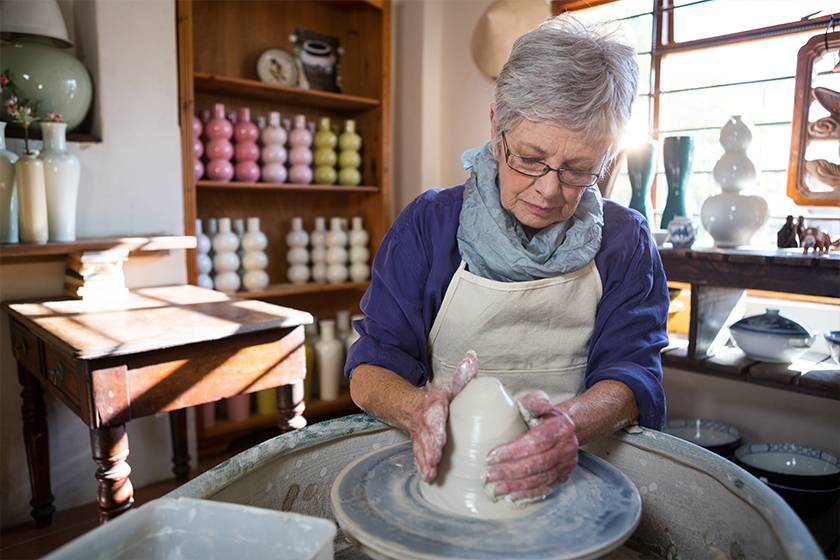When you think of art therapy, you probably don’t immediately think of helping your elderly loved one paint the wall. However, painting can be an excellent way for a person with dementia to socialize and make artful connections. It’s also a great way to help your loved one feel connected to their past, which many people with dementia struggle with.
In fact, there are so many benefits that come from practicing art with your loved one that you may even want to start teaching them this skill at home! Check out seven ways that art therapy can benefit your elderly loved ones.
Improves Cognition
As people age, they can often experience a decline in cognitive abilities. This can be difficult for both the elderly individual and their loved ones. However, art therapy can help improve cognition in elderly individuals.
In art therapy, participants engage in creative activities such as drawing, painting, and sculpting. The goal is not to produce a masterpiece but rather to allow participants to express themselves freely. This can be very beneficial for elderly individuals who may find it difficult to communicate verbally.
The act of creating art can also help improve cognitive abilities. When people are engaged in an activity that requires them to think critically and creatively, it can help keep their minds active and healthy. This is especially important for elderly individuals who are at risk of experiencing cognitive decline.
Improves Motor Skills and Coordination
Research has shown that art therapy can improve elderly loved ones’ motor skills. Poor motor skills can make everyday activities like getting dressed, bathing, and cooking much more difficult. For elderly loved ones, this can be frustrating and even embarrassing.
Art therapy is a great way to improve motor skills. It involves using art materials like paints, markers, and crayons to create works of art. This can help aging adults to become more coordinated and improve their movement.
Relieves Pain
As people age, they can often experience pain and discomfort from conditions such as arthritis. While medication may help to lessen this pain, it can also have negative side effects. For some elderly loved ones, traditional forms of therapy may not be suitable or effective. In these cases, art therapy can be a great option. It can be difficult for elderly loved ones to express their feelings, especially if they are in pain or feeling down. In art therapy, they can create artwork that reflects how they feel.
Relieves Stress
For older adults, staying mentally and emotionally healthy can be a challenge. As people age, they can sometimes feel isolated or alone, which can lead to feelings of stress and anxiety. This is where art therapy can be beneficial.
Art therapy uses creative expression to help people resolve and manage their emotions. During art therapy sessions, participants are encouraged to express themselves through various forms of art, such as painting, drawing, and sculpting. This can be an effective way for older adults to release any negative emotions they may be feeling and reduce stress levels.
Lowers Depression
When someone is engaged in artwork, their brain is actively engaged in the creative process. This can help to stimulate the brain and ward off conditions like dementia and Alzheimer’s disease. Art therapy can also provide a sense of purpose and accomplishment, which is especially important for older adults who may feel like they have lost their purpose in life.
Safe Social Activity
The elderly can often feel lonely and isolated, especially if they are no longer able to participate in many of the activities they used to enjoy. Art therapy can be a great social activity that is safe and fun for them. It can help stimulate their creativity and give them a sense of accomplishment. It can also provide an opportunity for them to share their thoughts and feelings with others, which can boost their self-esteem.
Improves Communication
Art therapy can help make communication easier for elderly loved ones. It can provide them with an outlet to express their thoughts and feelings, which can be helpful in building stronger relationships with family members and caregivers. Additionally, art therapy can help stimulate the mind and keep the elderly loved one engaged and interested in life.





